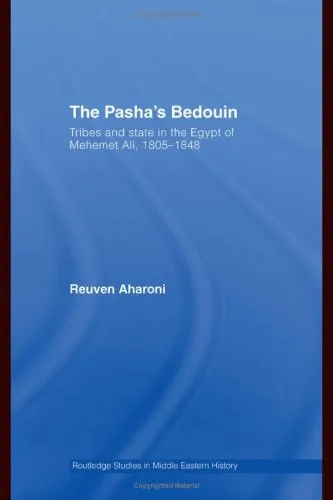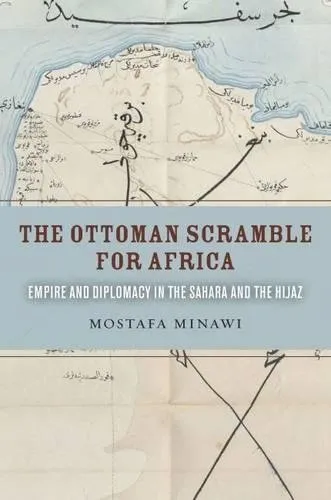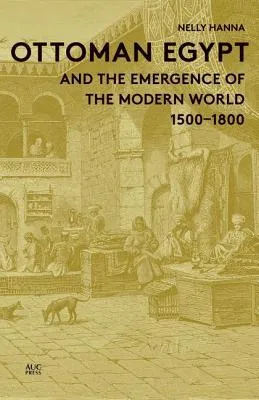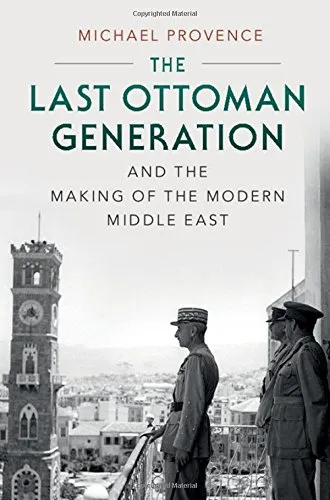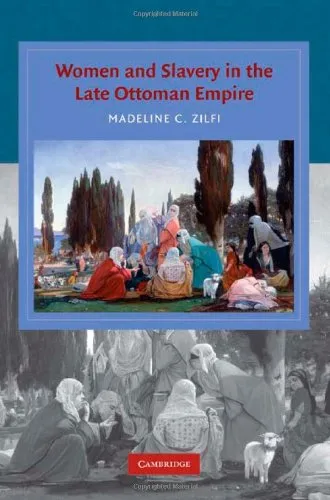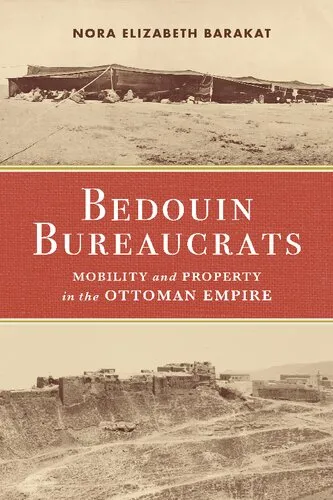The Pasha's Bedouin and Tribes and State in the Egypt of Mehmet 'Ali 1805-1848 (Middle East Studies: History, Politics & Law)
4.0
بر اساس نظر کاربران

شما میتونید سوالاتتون در باره کتاب رو از هوش مصنوعیش بعد از ورود بپرسید
هر دانلود یا پرسش از هوش مصنوعی 2 امتیاز لازم دارد، برای بدست آوردن امتیاز رایگان، به صفحه ی راهنمای امتیازات سر بزنید و یک سری کار ارزشمند انجام بدینکتاب های مرتبط:
کتاب 'The Pasha's Bedouin and Tribes and State in the Egypt of Mehmet 'Ali 1805-1848' یکی از آثار مهم در مطالعات خاورمیانه است که به بررسی روابط بین قبایل بادیهنشین و حکومت مصر در دورهٔ محمدعلی پاشا میپردازد. این اثر تاریخ سیاسی و اجتماعی مصر را از منظر تعاملات قبایلی تحلیل میکند و به خوانندگان دیدی تازه از نقش بادیهنشینان در شکلدهی ساختارهای اجتماعی و سیاسی ارائه میدهد. مطالعه این کتاب برای درک بهتر تحولاتی که منجر به شکلگیری دولت مدرن در مصر شد، ضروری است.
خلاصهای از کتاب
کتاب به تحلیل جامع روابط پیچیده میان قبایل بادیهنشین و حکومت مرکزی مصر تحت حاکمیت محمدعلی پاشا میپردازد. این دوره تاریخی، شاهد تغییرات بزرگی بود که نقشی کلیدی در تحول سیاسی و اقتصادی مصر ایفا کرد. نویسنده از منابع متعددی بهره برده است تا نشان دهد چگونه بادیهنشینان بهعنوان بازیگران استراتژیک به تثبیت و گسترش نفوذ دولت کمک کردند. در این تحلیل، نویسنده به بررسی سیاستهای محمدعلی پاشا در برخورد با قبایل و چگونگی تاثیر این سیاستها بر ساختار قدرت در مصر میپردازد.
نکات کلیدی
- اهمیت استراتژیک قبایل بادیهنشین در تثبیت حکومت مرکزی مصر.
- نقش قبایل در تحولات اقتصادی و اجتماعی دوره محمدعلی پاشا.
- تاثیر سیاستهای محمدعلی پاشا بر ساختارهای اجتماعی و قدرت سیاسی مصر.
جملات معروف از کتاب
محمدعلی پاشا تنها یک فرمانروا نبود، بلکه معماری بود که مسیر تاریخ مصر را تغییر داد.
چرا این کتاب مهم است
این کتاب نه تنها بهعنوان یک اثر تاریخی مهم به شمار میآید، بلکه به دلیل رویکرد نوین خود در بررسی تعاملات اجتماعی و سیاسی بین قبایل و دولت بسیار تاثیرگذار است. 'The Pasha's Bedouin and Tribes and State in the Egypt of Mehmet 'Ali' به طور خاص به دلیل شیوهای که در تحلیل نقش بادیهنشینان در تشکیل ساختارهای قدرت نوین در مصر بهکار رفته است، مطرح میباشد. افقهای جدیدی برای مطالعه تاریخ سیاسی اجتماعی خاورمیانه و بهطور خاص مصر گشوده و برای محققان، دانشجویان و علاقهمندان به تاریخ منطقه منبعی ارزشمند را فراهم کرده است.
Introduction to "The Pasha's Bedouin and Tribes and State in the Egypt of Mehmet 'Ali 1805-1848"
Reuven Aharoni's "The Pasha's Bedouin and Tribes and State in the Egypt of Mehmet 'Ali 1805-1848" provides a nuanced exploration of the complex relationships between the Bedouin tribes and the state during the rule of one of Egypt's most transformative leaders, Mehmet Ali Pasha. This book offers a deep dive into how modernization efforts and tribal dynamics intertwined in the early 19th century, shaping Egypt's political landscape.
Detailed Summary
This book meticulously examines the interplay between the Egyptian central government and the Bedouin tribes from 1805 to 1848 under Mehmet Ali Pasha, the Ottoman governor who is often credited with modernizing Egypt. Aharoni delves into the policies implemented by Mehmet Ali to consolidate control over the diverse Bedouin tribes, which historically held significant local power and autonomy.
The narrative highlights the dual strategy employed by Mehmet Ali: coercion through military might and persuasion via negotiation and concessions. It discusses how the Pasha sought to harness the tribes’ potential both militarily and economically, integrating them into his modern state-building efforts. Aharoni provides an insightful look into the tribes' responses to these overtures, ranging from acceptance and collaboration to resistance and rebellion.
Through an extensive analysis of historical documents, Aharoni paints a vivid picture of the political, social, and economic contexts of the time. The book explores how the Bedouin identity itself was transformed during this critical period, as the tribes navigated the pressures of being incorporated into a centralizing and modernizing state framework.
Key Takeaways
- State-Building Dynamics: The book elucidates the complex processes of state-building in 19th-century Egypt, highlighting the role of tribes in this transformation.
- Tribal Responses: A nuanced understanding of how Bedouin tribes negotiated their identities and autonomy amidst external pressures.
- Transformation of Power Structures: Insight into how Mehmet Ali's policies altered traditional power dynamics within the region.
- Strategic Policies: An exploration of the strategic balance between coercion and diplomacy in state governance.
Famous Quotes from the Book
"To understand the evolution of modern Egypt, one must first comprehend the delicate dance between tribal autonomy and state centralization."
"Mehmet Ali’s legacy is not simply in his reforms, but in his vision to incorporate the varied fabrics of Egyptian society into a singular national tapestry."
Why This Book Matters
This book is crucial for scholars and readers interested in Middle Eastern history, state formation processes, and tribal dynamics. By focusing on a pivotal era, Aharoni's work provides essential insights into the mechanisms of modernization and centralization that continue to influence contemporary Egypt and the broader Middle East.
Moreover, "The Pasha's Bedouin" showcases the importance of understanding historical tribal-state interactions, offering lessons applicable to various geopolitical contexts where similar dynamics are at play. As the world grapples with issues of state control and regional autonomy, the book's themes resonate, highlighting enduring challenges in governance and nationalism.
دانلود رایگان مستقیم
شما میتونید سوالاتتون در باره کتاب رو از هوش مصنوعیش بعد از ورود بپرسید
دسترسی به کتابها از طریق پلتفرمهای قانونی و کتابخانههای عمومی نه تنها از حقوق نویسندگان و ناشران حمایت میکند، بلکه به پایداری فرهنگ کتابخوانی نیز کمک میرساند. پیش از دانلود، لحظهای به بررسی این گزینهها فکر کنید.
این کتاب رو در پلتفرم های دیگه ببینید
WorldCat به شما کمک میکنه تا کتاب ها رو در کتابخانه های سراسر دنیا پیدا کنید
امتیازها، نظرات تخصصی و صحبت ها درباره کتاب را در Goodreads ببینید
کتابهای کمیاب یا دست دوم را در AbeBooks پیدا کنید و بخرید
1396
بازدید4.0
امتیاز0
نظر98%
رضایتنظرات:
4.0
بر اساس 0 نظر کاربران
Questions & Answers
Ask questions about this book or help others by answering
No questions yet. Be the first to ask!
